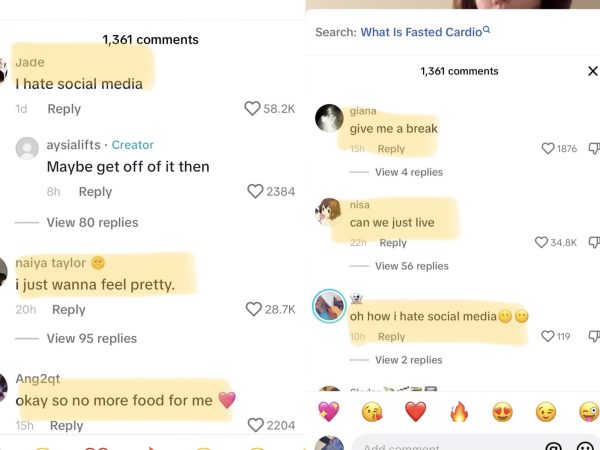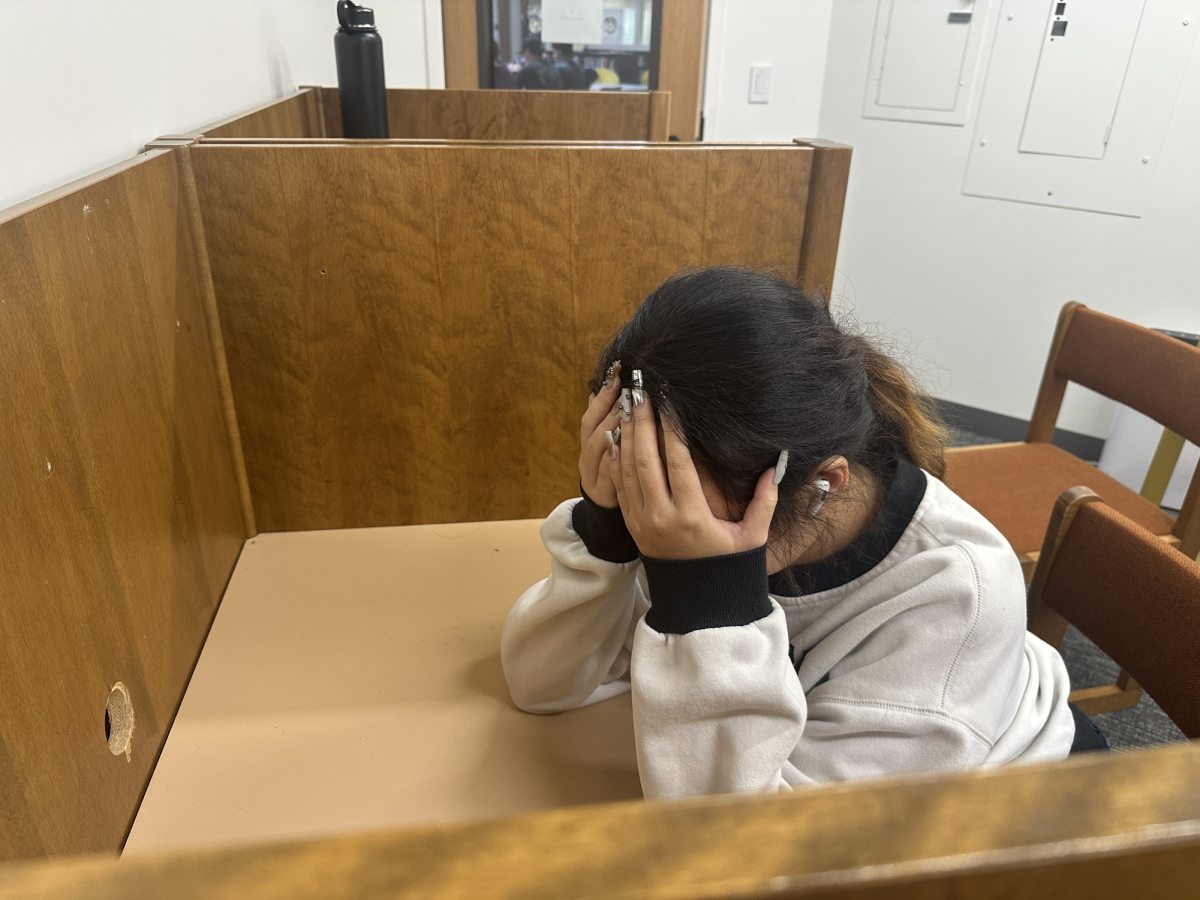As you scroll for hours on your TikTok For You page watching influencers, “get ready with me” videos showing off their perfect bodies in their fit checks, the pit in your stomach grows.
Social media is detrimental for teenagers’ mental health and perception of body images. Given this harm, Webb students should limit their social media use. From TikTok and Instagram to Snapchat, it is clear teenagers are attached to the phones like it is life or death. It is seen that almost 90% of teenagers from ages 13-17 now have phones where they access social media multiple times a day.
Social media is known to be a place where people present the best version of themselves or even photoshop themselves to look more “appealing.” Scrolling through hours of stunning photos and videos can make students compare themselves to the people on their screens, damaging their mental health.
“I feel like a lot of the time on social media, you’ll be [on your] for you page scrolling, and you’ll see these really beautiful pictures of people,” Emma Kaivan-Mehr (‘27) said. “You compare yourself to the photo, which most of the time, is just edited by Photoshop and all these other things, [but still] start feeling really bad about yourself.”
Social media does not inherently negatively affect body image, but if you follow creators that promote unrealistic beauty standards, repeated exposure inevitably sends your brain into an orbit, reinforcing the idea that you are not good or pretty enough.
Even influencers can be victims of the very standards they are promoting.
“I wouldn’t post if I felt bloated or anything like that,” said Emily Thornton (‘25), who has gone TikTok viral with 35,000 followers. “I just wouldn’t get on social media because I didn’t want to break that image I had of myself.”
It has been recognized that misuse of social media can even promote or be a risk factor for eating disorders.
“I think that’s actually been part of the challenge in identifying [social media is a risk factor] because people are very defensive about thinking something that they engage with and enjoy a lot [harms them],” said Melanie Bauman, Director of Wellness. “I don’t think just social media alone is causing eating disorders. Absolutely, for many people it’s a risk factor.”
Many influencers post their daily eating routines and show off their slim figure. Behind the scenes we do not know what these influencers are really eating or doing. Watching these videos can alter how teenagers view eating and attaining a figure society deems as ideal, when most of the time these eating tips lack credibility.
“I think that a lot of people in my generation think [how body image impacts our children as] one of our main worries,” Dean Lantz said. “Young people’s minds are still in development; we worry that too much influence from something could have such a negative impact. It could be detrimental.”

If your post meets the “wrong” crowd you may be met with hate comments and harassment, some even attacking your physical attributes.
“I think people forget that the things you say [and]the people you see on your screen are real people, and the things you say affect them,” Emily said. “Even if it’s like a video where there’s thousands, tens of thousands of views, people see the things you say.”
In contrast, when someone who meets the standards of societal beauty posts their comments look insanely different varying from “OMG I wish I looked like you” to “I’m going to put my burger down. I’m not hungry anymore.” These sorts of comments demonstrate how social media promotes a certain way to look or act.
At Webb many students use social media on a daily basis which may make them fall victim to these standards. Webb students should attempt to utilize social media less or become more aware of the detrimental effects it can have.
While it may be hard to take a break from social media because of societal norms, try to limit how long and stay on it and pay attention to the effects it has on your mind and self-perception.


![Scrolling through the TikTok comment section of popular influencer Julia Ernest, you notice a common pattern. People are spending their time watching TikToks of people they wish they looked like and comparing themselves. “I think that my 12-year-old is probably more body conscious than I would have said that I was at that age,” said Sarah Lantz, Dean of Students. “[This occurrence is] because she is exposed to those videos on social media.” Most influencers feed into the unrealistic beauty standards engraved in our minds, making us feel as if we need to alter our appearance to feel good enough.](https://webbcanyonchronicle.com/wp-content/uploads/2025/02/Antecol-Julia-Ernest-Social-Media-Affects-1200x900.jpeg)




![Many Webb students spend their free time in the library watching a popular TV show like Riverdale and Euphoria. “Based off what I’ve seen, like in Euphoria, because the actors are older, they don't showcase an actual high school life properly,” Sochika Ndibe (‘26) said. “Since [the actors] are older [and] playing a teenager, from a girl’s perspective, it is going to make you think you should look more developed at a young age.” The actor, who plays Veronica Lodge, was 22 years old at the time of filming.](https://webbcanyonchronicle.com/wp-content/uploads/2025/03/Antecol-Media-affects-how-society-functions-graphic-1200x900.png)







